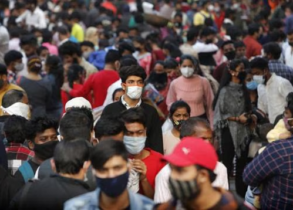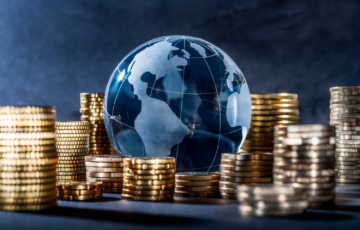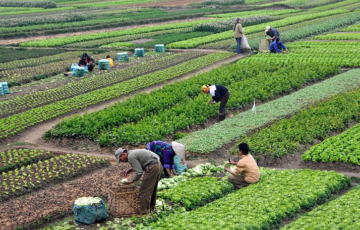BRETTON WOODS INSTITUTIONS
- After World War II, there was a pressing need among powerful nations for a more unified global financial order. The establishment of the United Nations Organization (UNO) signified hopes for a more stable world order. To address these concerns, representatives from the USA, the UK, and 42 other nations convened at Bretton Woods, New Hampshire, USA, in July 1944.
Creation of International Financial Institutions
- During the Bretton Woods Conference, the World Bank (including its first group organization, IBRD) and the International Monetary Fund (IMF) were established. Both institutions, headquartered in Washington DC, USA, are collectively known as the Bretton Woods twins.
International Monetary Fund (IMF)
- The IMF, founded in 1944, became operational on December 27, 1945, with the implementation of its Articles of Agreement.
Objectives of the IMF
- Facilitating international monetary cooperation.
- Ensuring exchange rate stability and orderly exchange arrangements.
- Facilitating the creation of a multilateral payment system and the removal of foreign exchange restrictions.
- Promoting balanced international trade.
- Providing short-term financial resources to member nations facing Balance of Payments (BoP) imbalances.
- Supporting sustained economic growth and employment.
- Contributing to poverty reduction worldwide.
Functions of the IMF
- Financial Assistance: The IMF provides loans to member nations experiencing balance of payments issues, aiming to replenish foreign reserves, stabilize currencies, and foster economic growth. These loans are often contingent upon the implementation of structural adjustment programs supervised by the IMF.
- IMF Surveillance: The IMF monitors the international monetary system and evaluates the economic and financial policies of its 190 member nations. Through surveillance, the IMF identifies potential risks to stability and provides recommendations for policy adjustments at both global and national levels.
- Capacity Development: The IMF offers technical assistance and training to central banks, finance departments, tax authorities, and other financial institutions. This support helps countries enhance revenue collection, modernize banking infrastructure, strengthen legal frameworks, improve governance, and enhance macroeconomic and financial data reporting. Additionally, capacity development initiatives assist countries in advancing towards the Sustainable Development Goals (SDGs).
IMF Organizational Structure
- The International Monetary Fund (IMF) operates within a structured framework overseen by the United Nations (UN). Its organizational structure comprises key entities such as the Board of Governors, Ministerial Committees, the Executive Board, the Managing Director, and staff. Each component plays a vital role in the governance and operations of the IMF.
The Role of the United Nations
- The United Nations holds the responsibility for supervising the administration and ensuring the effective functioning of the IMF. While the UN acts as the parent organization, the IMF operates autonomously within its mandate.
The Managing Director
- The Managing Director, the highest-ranking official within the IMF, is elected by the Executive Board for a term of five years. This individual serves as the chief executive officer, responsible for steering the organization’s strategic direction and overseeing its day-to-day operations.
Board of Governors
Representation and Responsibilities
- Composition: Each member nation appoints a governor and an alternate governor to represent their interests within the Board of Governors.
- Decision-Making: The Board of Governors holds the authority to appoint Executive Directors to the Executive Board, approve quota increases, and allocate Special Drawing Rights (SDRs) among members.
- Membership Matters: It manages the admission of new members and can enforce the withdrawal of existing members if necessary.
- Amendments: The Board of Governors possesses the power to amend the Articles of Agreement and By-Laws, shaping the IMF’s regulatory framework.
- Ministerial Committees: It receives guidance from ministerial committees, such as the International Monetary and Financial Committee (IMFC) and the Development Committee.
- Annual Meetings: Annually, it convenes alongside the World Bank Group’s Board of Governors during the IMF-World Bank Annual Meetings to discuss organizational activities.
Executive Board
Role and Functions
- Delegated Authority: The Executive Board, appointed by the Board of Governors, manages the IMF’s daily operations and exercises decision-making authority.
- Surveillance: It conducts surveillance over global economic developments and provides guidance on policy matters.
- Technical Assistance: The Executive Board oversees the provision of technical assistance to member countries, assisting them in strengthening their economic policies and institutions.
Membership of IMF
- Membership in the IMF is governed by the IMF Articles of Agreement and conditions set by the Board of Governors. Key points regarding membership include:
- Any state, regardless of UN membership, may join the IMF.
- Membership in the International Bank for Reconstruction and Development (IBRD) is a prerequisite for IMF membership.
- Upon joining, each member nation makes a monetary contribution known as a quota subscription, determined by its wealth and economic performance.
Special Drawing Rights (SDRs):
- SDRs are international reserve assets created by the IMF to supplement member countries’ official reserves.
- They were established after the demise of the Bretton Woods Exchange Rate System.
- SDRs are allocated to member countries in proportion to their IMF quotas.
- They are not physical currencies but rather an accounting unit, often referred to as “Paper Gold.”
- SDRs can be traded among members and used to address balance of payments issues.
- Quotas are expressed in SDRs, and the SDR currency value is revised every five years.
Important Reports Released by IMF
| Report | Description |
| World Economic Outlook | Provides analysis and forecasts of global economic trends, including growth projections, inflation rates, and fiscal policy recommendations. |
| Global Financial Stability Report | Focuses on assessing and addressing potential risks to global financial stability, including banking sector vulnerabilities, asset price movements, and policy recommendations to mitigate systemic risks. |
India and IMF
Founding Membership and Representation
- India is a founding member of the IMF.
- The Union Finance Minister of India serves as the Ex Officio Governor on the IMF’s Board of Governors, with the RBI Governor serving as the alternate governor.
- India’s shareholding in the IMF increased through quota reforms, positioning it as the eighth-largest quota holder.
Historical Assistance and Engagement
- IMF assistance was pivotal in resolving India’s balance of payments deficits post-partition and during the Indo-Pak conflict.
- India borrowed from the IMF to overcome financial challenges, including a foreign exchange crisis and rising import costs.
- IMF loans aided in stabilizing India’s economy during periods of economic turmoil, like the oil price shocks of the 1970s.
Transition and Non-Dependence
- India gradually reduced dependence on IMF assistance, with the last loan repaid in 2000.
- Despite having a significant quota, India ranks lower in voting share on the IMF’s Executive Board due to the constituency structure.
World Bank and World Bank Group
- The World Bank Group, comprising five international institutions, including the International Bank for Reconstruction and Development (IBRD) and the International Development Association (IDA), was established at the Bretton Woods Conference in 1944. Committed to eradicating poverty and fostering prosperity, the World Bank Group operates as a global partnership of 189 nations.
Brief History of World Bank
- The IBRD was initially focused on post-war reconstruction but gradually shifted its emphasis to development projects. Over time, additional institutions like the IDA, International Finance Corporation (IFC), Multilateral Guarantee Agency (MIGA), and International Centre for the Settlement of Investment Disputes (ICSID) were established, leading to the formation of the World Bank Group.
Membership Criteria
- Countries seeking membership in the World Bank Group must first be members of the International Monetary Fund (IMF). Additionally, to join institutions like the IDA, IFC, or MIGA, membership in the IBRD is a prerequisite. Membership in the ICSID requires fulfilling several criteria, including membership in the IBRD and signatory status to the Statute of the International Court of Justice.
Important Reports by World Bank
- The World Bank regularly publishes reports covering various aspects of global development, including the World Development Report, Ease of Doing Business Index, Remittance & Migration Report, Global Economic Prospects report, and others, providing valuable insights for policymakers and stakeholders worldwide.
International Bank for Reconstruction and Development (IBRD)
- The IBRD serves as a global development cooperative and is the world’s largest development bank. With 189 member countries, it provides loans, guarantees, advisory services, and risk management tools to creditworthy middle-income and low-income countries. The majority of its funding comes from global financial markets, and it generates revenue from loan returns to finance its operations.
IBRD and India
- India, a founding member of the IBRD, has been a significant recipient of its assistance since 1949. The IBRD has played a crucial role in supporting India’s development efforts, particularly in infrastructure and institutional strengthening. As India transitions to middle-income status, it remains eligible for loans from both the IDA and IBRD, making it one of the largest borrowers from the World Bank.
International Development Association (IDA)
- The International Development Association (IDA), a vital arm of the World Bank Group, plays a crucial role in providing assistance to the world’s poorest nations.
Purpose and Objectives
- Poverty Alleviation: IDA aims to reduce poverty by offering grants and low-interest loans to the world’s poorest nations, focusing on initiatives that enhance living conditions, promote economic growth, and reduce inequality.
- Focus on Africa: With 39 out of the 75 poorest nations in Africa, IDA is a significant contributor to basic social services and infrastructure development on the continent.
- Key Sectors: IDA’s work spans across various sectors, including infrastructure, institutional reforms, clean water and sanitation, improvements in the business climate, agriculture, and primary education.
Financial Assistance and Concessional Terms
- Low-Interest Loans: IDA extends loans on highly concessional terms, featuring zero or very low interest rates and extended repayment periods of 30 to 38 years, including grace periods of 5 to 10 years.
- Eligibility Criteria: Nations with the lowest per capita income, poorest credit ratings, and lowest gross national incomes (GNI) qualify for IDA assistance. The Gross National Income per person of a nation must not exceed $1,145 to borrow from IDA’s concessional lending programs.
International Finance Corporation (IFC)
- The International Finance Corporation (IFC), a sister organization of the World Bank, primarily focuses on fostering private sector development in developing nations.
Purpose and Objectives
- Private Sector Development: Founded in 1956, IFC aims to stimulate economic growth by supporting commercial ventures that reduce poverty and promote development.
- Investment and Advisory Services: IFC provides investment, asset management, and advisory services to private sector enterprises and projects in developing countries.
- Financial Support: IFC extends loans with maturities ranging from seven to twelve years, tailored to the needs of borrowers. It also mobilizes third-party resources to support projects.
Engagement with India
- Founding Membership: India is one of the founding members of IFC and has actively engaged with the organization to promote private sector growth.
- Investments and Impact: IFC has increased investments in India, focusing on projects with significant economic and social impact, especially in low-income and northeastern states.
- Financial Inclusion and Sustainability: IFC supports financial inclusion initiatives, sustainable businesses, renewable energy projects, and public-private partnerships in India, contributing to economic development and environmental sustainability.
Multilateral Investment Guarantee Agency (MIGA)
- MIGA, a member of the World Bank Group, provides insurance guarantees for private sector investments in developing countries.
Purpose and Objectives
- Investment Guarantee: MIGA offers political risk insurance and credit enhancement to investors and lenders in developing nations, promoting economic growth and poverty reduction.
- Focus Areas: MIGA prioritizes fragile and conflict-affected countries, providing coverage for various risks, including conflict, expropriation, and contract violations.
- Financial Protection: MIGA’s insurance products protect investments from non-commercial risks, encouraging foreign direct investment (FDI) in developing countries.
Membership and Engagement
- Membership: MIGA membership is open to all members of the International Bank for Reconstruction and Development (IBRD), with India becoming an official member in 1994.
- Economic Growth and Poverty Reduction: MIGA works to attract FDI into developing countries, contributing to economic growth, poverty reduction, and improved livelihoods.
- Risk Mitigation: MIGA’s insurance products mitigate political and non-commercial risks, providing investors with confidence and encouraging investment in developing nations.
International Centre for Settlement of Investment Disputes (ICSID)
- ICSID, established in 1966, facilitates the resolution of investment disputes between states and investors.
Purpose and Objectives
- Dispute Resolution: ICSID resolves investment disputes through arbitration, fact-finding, and conciliation, providing a neutral platform for resolving conflicts.
- International Framework: Many international investment treaties and contracts recognize ICSID as a forum for resolving investor-state disputes, ensuring fair and impartial resolution.
- Administrative Role: ICSID serves as an administrative register, facilitating dispute resolution and disseminating information on international investment laws.
Membership and Engagement
- Membership Criteria: Membership in ICSID is open to countries that are members of the IBRD and parties to the Statute of the International Court of Justice (ICJ).
- Resolution of Investment Disputes: ICSID provides a dedicated team for each case, offering professional guidance and assistance in resolving investment disputes.
- International Framework: ICSID contributes to the development of international investment law and promotes investor confidence through fair and efficient dispute resolution mechanisms.
World Bank Group and India
- The relationship between India and the World Bank Group (WBG) has been longstanding, with India being one of the original signatories to the Bretton Woods agreements. Over the years, India’s association with the WBG has evolved, with significant implications for the country’s economic development. This analysis explores various facets of this relationship, including historical context, funding initiatives, project engagements, and the significance of the WBG in global development.
Historical Context and Membership
- India’s involvement with the WBG dates back to its inception, being a founding member of the International Monetary Fund (IMF) and the International Bank for Reconstruction and Development (IBRD). India also joined other WBG institutions like the International Development Association (IDA) and the International Finance Corporation (IFC) in subsequent years. Notably, India refrained from joining the International Centre for Settlement of Investment Disputes (ICSID) due to concerns regarding arbitration fairness.
Funding and Investments
- The WBG has been a significant source of funding and investment for India’s developmental projects, particularly in key sectors like infrastructure, healthcare, education, and poverty alleviation. Noteworthy initiatives include the National Rural Livelihoods Project, Skill India Mission, and Clean India Mission. The WBG’s financial assistance played a crucial role in supporting India’s economic development, especially during periods of economic crises such as the Balance of Payment crisis in 1991.
Challenges and Criticisms
- Despite the positive contributions, the WBG has faced criticisms, particularly regarding its Structural Adjustment Programme (SAP), which some argue serves the interests of global capitalism. Critics contend that SAP policies have widened the gap between rich and poor, locally and globally. Additionally, there have been calls for reforms within the WBG to better accommodate emerging economies like India and China, reflecting the changing global order.
UPSC PREVIOUS YEAR QUESTIONS
1. “Rapid Financing Instrument” and “Rapid Credit Facility” are related to the provisions of lending by which of the following: (2021)
1. Asian Development Bank
2. International Monetary Fund
3. United Nations Environment Programme Finance Initiative
4. World Bank
2. ‘Global Financial Stability Report’ is prepared by ________ ( 2016)
1. European Central Bank
2. International Monetary Fund
3. International Bank for Reconstruction and Development
4. Organisation for Economic Cooperation and Development.
3. Recently, which one of the following currencies has been proposed to be added to the basket of the IMF’s SDR? (2016)
(a) Rouble
(b) Rand
(c) Indian Rupee
(d) Renminbi
4. With reference to the International Monetary and Financial Committee (IMFC), consider the following statements : (2016)
1. IMFC discusses matters of concern affecting the global economy and advises the International Monetary Fund (IMF) on the direction of its work.
2. The World Bank participates as an observer in IMFC’s meetings.
Which of the statements given above is/are correct?
(a) 1 only
(b) 2 only
(c) Both 1 and 2
(d) Neither 1 nor 2
5. India’s ranking in the ‘Ease of Doing Business Index’ is sometimes seen in the news. Which of the following has declared that ranking? (2016)
1. Organisation for Economic Cooperation and Development (OECD)
2. World Economic Forum
3. World Bank
4. World Trade Organisation (WTO)
6. Which one of the following issues the ‘Global Economic Prospects’ report periodically? (2015)
1. The Asian Development Bank
2. The European Bank for Reconstruction and Development
3. The US Federal Reserve Ban
4. The World Bank

